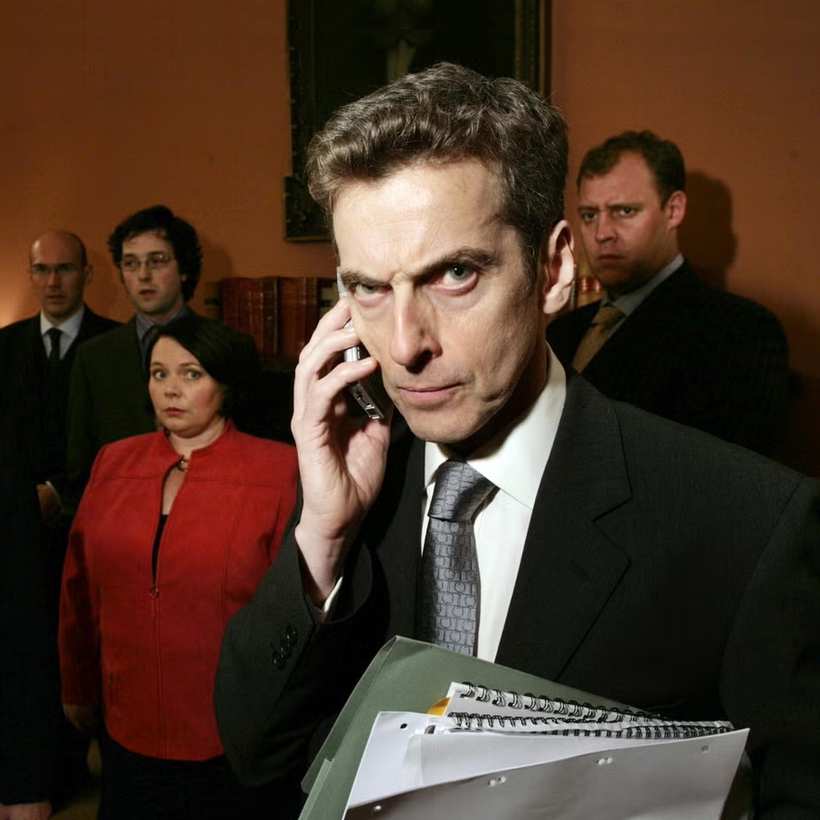In November 2005, Chris Langham was arrested in connection with paying to access indecent and abusive images of children on the Internet. Six months later he was charged with 15 counts of downloading indecent images of children.
ARMANDO IANNUCCI, CREATOR: It was difficult with Chris because he was charged but there wasn’t a trial. I decided to not make a judgment until there was a judgment. I didn’t realize the trial would take over 18 months. That’s why we did two one-hour specials where Hugh was referred to but wasn’t in it. But then he was found guilty so it became very clear.

